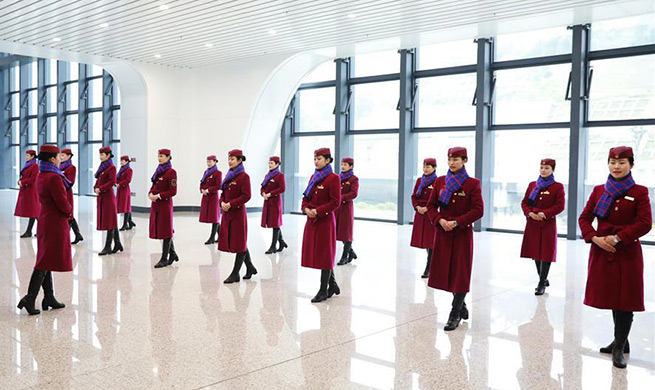LONDON, Jan. 8 (Xinhua) -- Researchers have developed a reactive robotic programming system that lets a robot continuously learn the human user's movements and adapt its own movements accordingly, the Imperial College London announced on Tuesday.
Humans are unpredictable and constantly change their movements, which makes it difficult for robots to predict human behavior and react in helpful ways. This can lead to errors in completing the task.
Professor Etienne Burdet from Imperial College London and colleagues have developed the first interactive robot controller to learn behavior from the human user and use this to predict their next movements.
"When observing how humans physically interact with each other, we found that they succeed very well through their unique ability to understand each other's control. We applied a similar principle to design human-robot interaction," Burdet said.
The team developed a robot controller based on game theory, which consists of multiple players either competing or collaborating to complete a task. They used game theory to determine how the robot responds to the effects of interacting with a human, using the difference between its expected and actual motions to estimate the human's strategy.
The research, conducted in collaboration with the University of Sussex and Nanyang Technological University in Singapore, is published in the journal Nature Machine Intelligence.
Next, the team will apply the interactive control behaviour for robot-assisted neurorehabilitation with the collaborator at Nanyang Technological University in Singapore, and for shared driving in semi-autonomous vehicles, according to the Imperial College London.













